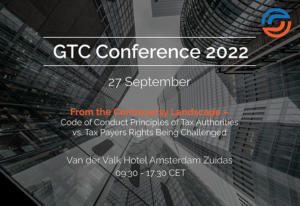SEC Roundup: Various MNEs Report IRS Transfer Pricing and related Adjustments
By Sony Kassam
Dell Technologies Inc., a Texas-based information technology company, reported that the IRS Office of Appeals is reviewing its federal income tax returns for 2007-09 and that the agency proposed transfer pricing adjustments for those years, according to a filing with the Securities and Exchange Commission.
In addition, Analogic Corp. reported that it accrued interest by $1.8 million partly due to settling a transfer pricing audit in Denmark.
They were among nine companies reporting issues related to transfer pricing to the SEC in September 2017. An alphabetized list follows.
Analogic Corp., a health care and security technology company based in Peabody, Mass., said it’s uncertain tax positions reduced by $0.5 million due to the settlement of a transfer pricing audit. It also reported that it accrued interest by $1.8 million in fiscal year 2017 “as a result of the closing of statutes of limitation for fiscal year 2013 for domestic entities, the remeasurement of uncertain tax benefits in open years, and settlement of a transfer pricing audit in Denmark.”
Brocade Communications Systems Inc., a San Jose, Calif.-based technology firm, said it recorded an operating loss before tax and a net discrete benefit from releasing reserves after settling transfer pricing issues with the Geneva Tax Administration during the nine months ended July 29, 2017.
CH2M Hill Companies Ltd., an Englewood, Colo.-based engineering firm, said it received a 280.8 percent tax benefit for 2016, due in part to the release of valuation allowance from foreign net losses as a result of a change to its transfer pricing strategy.
Cisco Systems, Inc., a San Jose, Calif.-based networking equipment company, said its unrecognized tax benefits at July 29, 2017, may decrease by about $100 million in the next 12 months if transfer pricing issues are resolved.
Cooper Companies Inc., a Pleasanton, Calif.-based medical equipment company, said the British tax authority has looked into whether it applies to the U.K. diverted profits tax, including a review of its 2015 transfer pricing.
Dell Technologies Inc., an information technology company based in Round Rock, Texas., said the Internal Revenue Service’s Office of Appeals is reviewing the company’s federal income tax returns for 2007-09. It also said the IRS issued a report related to those years during the fiscal year ended Feb. 3, 2017, and that the agency proposed adjustments mostly related to transfer pricing.
Harris Corp, an international communications equipment company based in Melbourne, Fla., reported tax fees of $1.23 million in fiscal year 2017 “related to tax compliance, including foreign and domestic return preparation and transfer pricing studies,” as well as $2.38 million related to tax planning and advisory services.
Keysight Technologies, Inc., an electronic measurement service company based in Santa Rosa, Calif., said it reduced its deferred tax liability by $9 million during the third quarter of 2017 to comply with transfer pricing policies.
Nutanix Inc., a San Jose, Calif.-based cloud computing company, reported a $11.8 million positive adjustment for transfer pricing in the fiscal year that ended July 31, 2017.
Sasol Faces Prolonged South African Battle Over $969M Tax Bill

• Potential tax charge of 11.6 billion rand follows 1.2 billion rand disputed charge;
• Sasol will appeal to South Africa’s Supreme Court after tax court rules against it.
By Marcia Klein
A tax dispute over a potential 11.6 billion rand ($878 million) tax charge between South  Africa
Africa -based international chemicals and energy company Sasol and the country’s tax collector will play out in South Africa’s Supreme Court of Appeal within the next 12 months.
-based international chemicals and energy company Sasol and the country’s tax collector will play out in South Africa’s Supreme Court of Appeal within the next 12 months.
This follows a previous dispute with the South African Revenue Service (SARS) over a 1.2 billion rand tax assessment for 2005-12 that Sasol challenged but lost in the tax court June 30.
Sasol announced in an Aug. 22 full-year earnings statement that there could be a potential tax exposure of 11.6 billion rand for the 2013-14 tax years relating to its international crude oil procurement activities through its Sasol Oil unit.
It has already faced a similar charge relating to Sasol Oil’s international crude oil procurement activities for 2005-12 and has indicated there could be potential adjustments to taxable income and an additional tax liability including interest and penalties of 1.2 billion rand for the periods 2005-14.
The supreme court Aug. 14 granted Sasol’s application for leave to appeal the June 30 tax court ruling.
Further Tax Obligations
Sasol also warned that further possible obligations may arise for the 1999-2004 and 2015-17 tax years.
Chief financial officer Paul Victor, speaking at the Aug. 22 release of Sasol’s financial results, said the ongoing dispute related to international crude oil procurement for its Natref refinery in Sasolburg, South  Africa
Africa .
.
He said the 11.6 billion rand tax issue was “based on different grounds” than the earlier dispute, and largely related to the deduction of costs not being allowed in the assessment of taxable profits. In its results statement, Sasol said the 2013 to 2014 tax assessment was based “on varying tax principles, unrelated to the principles of the [tax court] judgment referred to above,” but Sasol wouldn’t elaborate.
“The matter is before the court,” Matebello Motloung, media relations specialist at Sasol, said Aug. 23 in an e-mail to Bloomberg BNA. “Therefore we cannot disclose more than we already have in our SENS [Stock Exchange News Service] announcement.”
Transfer Pricing?
“This is really a transfer pricing issue,” said Wade Napier, analyst at Avior Capital Markets. “Sasol would purchase crude oil from a supplier via a subsidiary in the U.K. Typically, it would declare revenue and expense costs against that revenue, but SARS is not classifying the cost of the crude that Sasol is purchasing as an expense.”
Sasol’s dispute with the tax authority comes after Kumba Iron Ore, Anglo American’s iron ore producer, announced Feb. 3 that it had settled a tax dispute between its Sishen Iron Ore subsidiary and SARS for 2.5 billion rand.
SARS didn’t immediately respond to requests for comment.
Sasol has replied to SARS on the more recent assessment, Victor said, and is “awaiting feedback.”
“We have a constructive relationship,” he said, adding that both parties will rely on the processes available “to amicably resolve” the issue.
“It is best to allow the legal process to run. We believe we have firm grounds to stand on, as does SARS,” he said, adding that the issue should reach court within 12 months.





